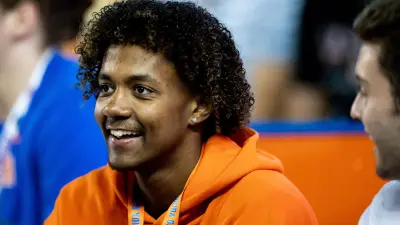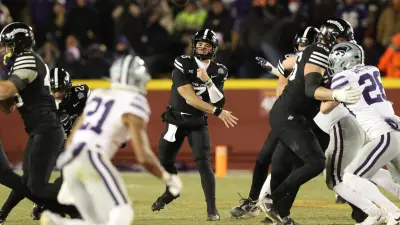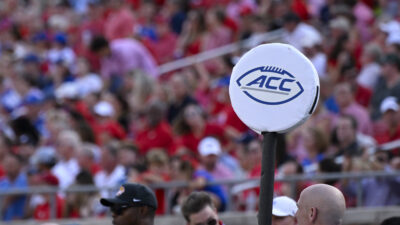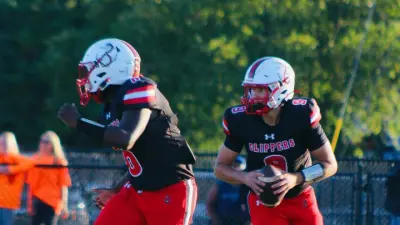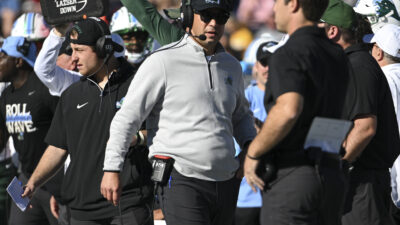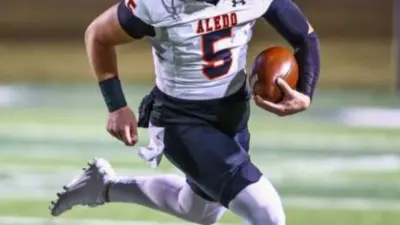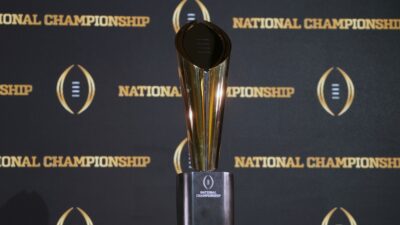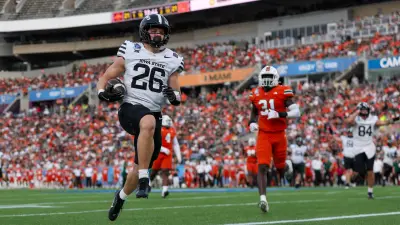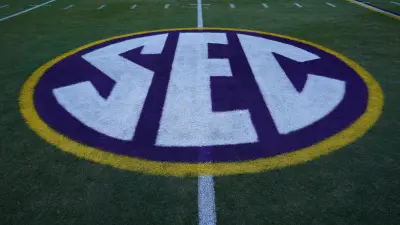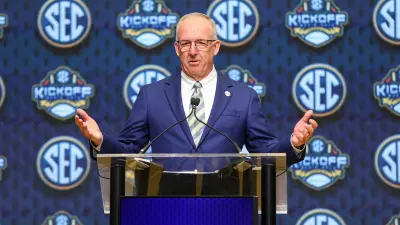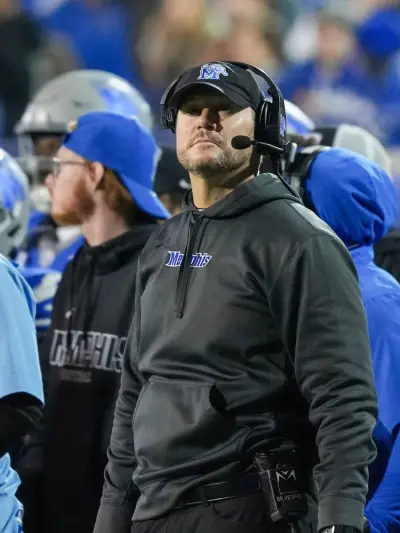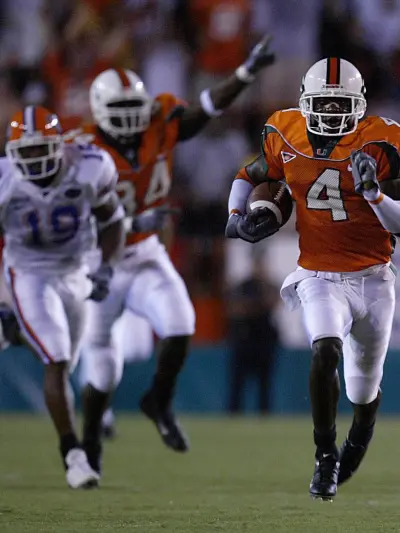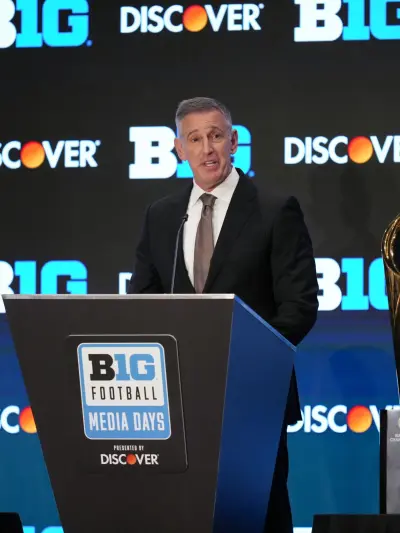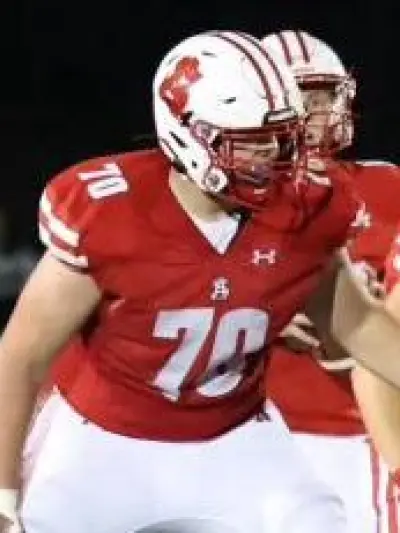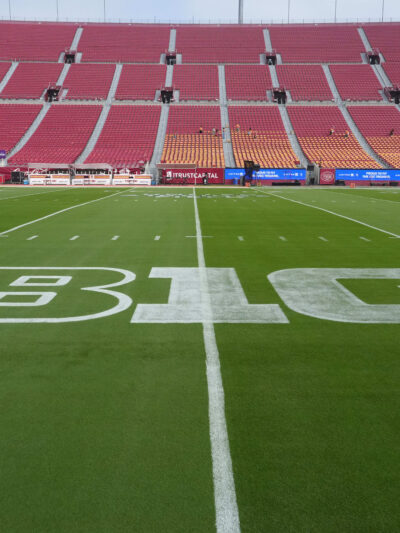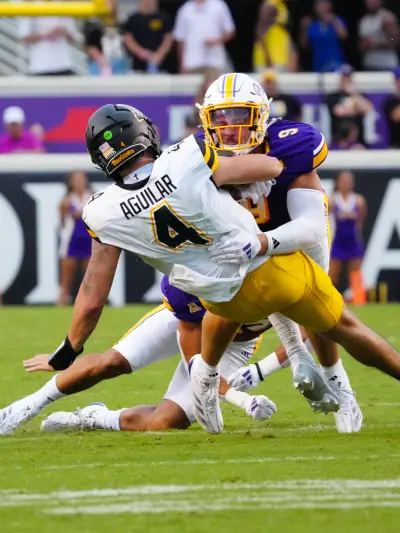By Rock Westfall
The fallout continues from Jaden Rashada’s lawsuit against Billy Napier on multiple fronts. Additionally, private investment firms are seeking to fund top athletic departments. Not to be outdone, the NCAA Board of Governors voted to approve a settlement in the House vs. NCAA antitrust cases.
Will The NCAA Be Cleaned Out By House?
The NCAA is in a no-win situation of its own making; thus, it is trying to cut losses. On Wednesday night, the NCAA Board of Governors voted to agree to settlement terms in the House vs. NCAA case. It is the classic case of “pay me now or pay me later.”
The settlement will pay more than $2.7 billion in damages to former athletes over the next decade for name, image, and likeness. Additionally, and perhaps most importantly, the settlement will allow schools to pay approximately $20 million per year to students potentially. These payments could start as early as the fall of 2025.
Of course, the devil will be in the details, with a multitude of complexities yet to be worked out. While the settlement will not be a final solution to governing the current lawlessness of college sports, it is a major first step in the correct direction.
The NCAA had to settle or face the prospect of a loss in court with over $4 billion in damages to be paid out. The final settlement will still take months to finalize, but a reasonable framework is in place.
For college football purposes, the final result must be a logical calendar for recruiting and the transfer portal, preferably not in December when the College Football Playoff and bowl games are taking place. National Signing Day must return to February, and the transfer portal window needs sensibility, too.
More Sports News
Finally, schools directly paying players can help prevent lawsuits. This week, Jaden Rashada sued Florida coach Billy Napier and a top outside collective donor for fraud after a deal worth almost $14 was allegedly reneged. Thus, schools prefer to directly pay athletes without getting tangled up with outside collectives that they have no control over.
https://twitter.com/DanWetzel/status/1793620712327921681
A Redbird in the Bush?
Two private equity firms, RedBird Capital and Weatherford Capital, announced the creation of Collegiate Athletic Solutions (CAS). While the project sounds benevolent in terms of helping cash-strapped athletic programs, its true purpose is to profit from the current lack of law and structure in college sports.
The vision of CAS is to help athletic departments bridge immediate gaps they may have in their budgets while gaining a percentage of the future profits when college sports stabilize themselves.
CAS emphasizes that this project is more about capital than equity. There would be no CAS ownership, and instead, the emphasis would be on advising and managing revenue growth. In turn, CAS would get a percentage of the growth for its initial investments and advisory services.
Drew Weatherford played football at Florida State and runs Weatherford Capital with his brother Sam. This, of course, leads to another area of speculation-Florida State’s football future either in a reformed ACC or in another conference.
Weatherford’s alma mater sued to get out of the ACC, but a settlement of the case will take a long time. Thus, the ACC reforming itself with the ability to pay its top programs more money may be a more viable and realistic alternative.
When asked why he would get involved in college sports without equity, Drew Weatherford voiced his belief in the future of college athletics as a former player. He added that currently, only 10 to 15 teams have a chance to win the national championship. He hopes to help lead positive change that would create the opportunity for 40 or 50 teams to have a realistic chance for the CFP title.
College administrators are getting realistic about such arrangements with firms such as CAS, acknowledging they will be needed to bridge the gap of future budgets that are raging out of control despite increased TV revenue. CAS is already in discussions with several athletic departments about joining forces.
Indeed, as more money comes into athletic departments, even more money continues to go out. It’s become an endless cycle of unsustainable insanity. CAS would work to end the madness.
https://twitter.com/JayBilas/status/1793315075408777459
The Nuclear Fallout of Jaden Rashada’s Lawsuit
The more the Jaden Rashada story is examined, the more complex it actually is. The biggest moving parts involved an initial agreement between Rashada and Miami-FL, a subsequent payout to Miami by Florida boosters to release Rashada, and then Rashada allegedly getting stiffed by Florida once he arrived. We don’t yet know the precise truth and may not for several years, if ever.
One thing we do know is that college football coaches are now terrified about being sued in a similar way, even if they did nothing wrong. Verbal misunderstandings or outside boosters failing to deliver the bag are all potential problems that a coach has little or no control over. Yet coaches now face more potential legal liability and hassles than ever before.
From now on, a prospect or his family, along with other programs, can contrive reasons to sue other potentially innocent coaches, if for no other reason than negative publicity and recruiting, not to mention the possibility of a settlement to avoid going to court and potential discovery.
The Rashada case is the best example of why schools should directly control all payments to players.
The moment that college football coaches learned of the Rashada lawsuit, they no doubt started to do mental rewinds regarding their past conversations with prospects. Many of these coaches likely grilled assistants about their previous interactions with prospects as well.
Sadly, the more money gets involved in college football, the less fun it is becoming.
The pajama boys in the media who never understood the sport they were covering were perpetually calling for an NFL model and player’s “rights.”
Now, they are getting what they wished for, and the rest of us who loved and understood the game for what it was supposed to be are about to get it.
